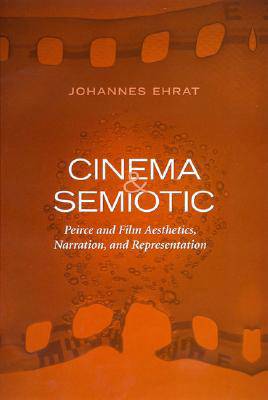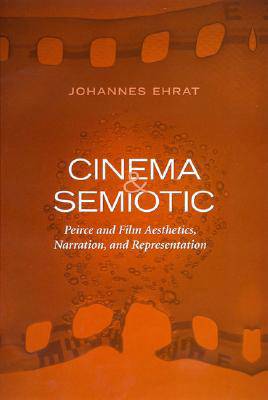
- Retrait gratuit dans votre magasin Club
- 7.000.000 titres dans notre catalogue
- Payer en toute sécurité
- Toujours un magasin près de chez vous
- Retrait gratuit dans votre magasin Club
- 7.000.0000 titres dans notre catalogue
- Payer en toute sécurité
- Toujours un magasin près de chez vous
Description
'Meaning' in cinema is very complex, and the flood of theories that define it have, in certain ways, left cinematic meaning meaningless. Johannes Ehrat's analysis of meaning in cinema has convinced him that what is needed is greater philosophical reflection on the construction of meaning. In Cinema and Semiotic, he attempts to resurrect meaning by employing Charles S. Peirce's theories on semiotics to debate the major contemporary film theories that have diluted it.
Based on Peirce's Semiotic and Pragmatism, Ehrat offers a novel approach to cinematic meaning in three central areas: narrative enunciation, cinematic world appropriation, and cinematic perception. Attempting a comprehensive theory of cinema - instead of the regional 'middle-ground' theories that function only on certain 'common-sense' assumptions that borrow uncritically from psychophysiology - Ehrat further demonstrates how a semiotic approach grasps the nature of time, not in a psychological manner, but rather cognitively, and provides a new understanding of the particular filmic sign process that relates a sign to the existence or non-existence of objects. Never before has Peirce been so fruitfully employed for the comprehension of meaning in cinema.
Spécifications
Parties prenantes
- Auteur(s) :
- Editeur:
Contenu
- Nombre de pages :
- 670
- Langue:
- Anglais
- Collection :
Caractéristiques
- EAN:
- 9780802039125
- Date de parution :
- 16-03-05
- Format:
- Livre relié
- Format numérique:
- Genaaid
- Dimensions :
- 163 mm x 236 mm
- Poids :
- 1052 g







